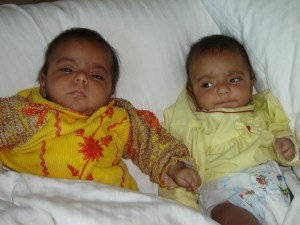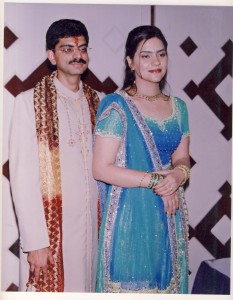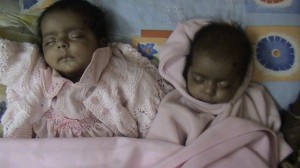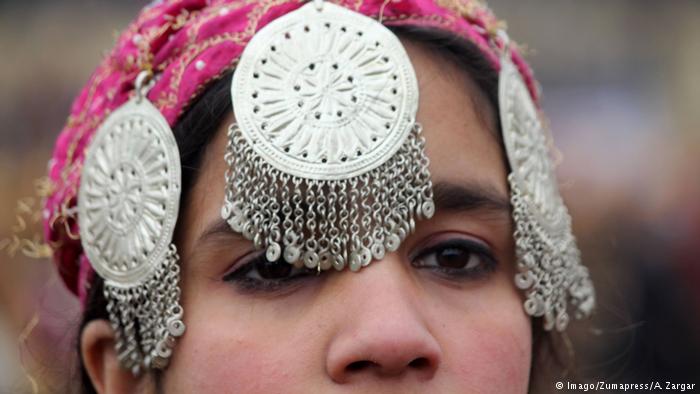Justice for the daughters
Mitu Khurana is a doctor who been fighting for years against female foeticide. She has been a victim of her parents-in-law who tried everything in their power to stop Mitu from giving birth to her twin girls. She has now become the woman who champions the cause of baby girls and an activist who leaves no stone unturned to create awareness on the problem of sex selection.
Roma Rajpal: How far along are you on your journey to getting justice for yourself and your daughters?
Mitu Khurana: We are safe and away from violence. Otherwise in the courts, it’s a long perhaps never ending battle. The accused are rich and powerful. They have the powers to influence the authorities. I am very very far away from attaining my goal.
Do you think the patriarchal mindset in India can be changed? If so how?
Any change, if it happens, can be through the youth, if they are sensitized by people who themselves are sensitive to such problems. Until then, perhaps only international pressure and intervention by UN to stop the gendercide can save us.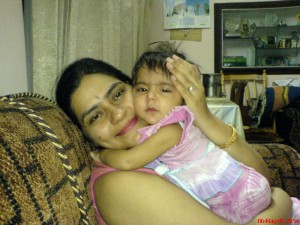
Your in-laws and your husband are well-educated people, yet they failed to discriminate and resorted to treating you like a bully. If this comes from educated people, how would the lower class ever be able to come to terms with the awareness that India needs?
The desire for a son is prevalent all over India. Some have the means to go for sex-selective abortion; others resort to abandoning, neglecting or killing their daughters. Programs like “Satyamev Jayate” (a popular series on social issues) and the movie, “It’s a girl” can help a lot to spread awareness. Neighbourhood watch groups, training groups, NGOs which train people to become watch dogs can also help.
There are weak moments, when I feel it’s a losing battle, because the accused are powerful and the system doesn’t want women like me, who walk out and save their daughters. On the other hand it always favours people who are rich and powerful. It was the struggle against my husband which turned into a struggle against the whole system.
This woke me up. Things need to change at every level. It’s no longer a personal fight, because now I am fighting the system, which does not want daughters, which does not respect women, which does not think of providing justice because of patriarchal atitude and corruption.
Added to it was the company of good friends which taught me the problem is widespread. I was just one of the many women who were suffering. I could come out because my parents supported me, otherwise I would have continued to be a victim. Parents usually do not support daughters to move away from their husbands, despite of having been in grave danger.
Tell me about your work as an activist.
I have been trying to raise awareness through painting competitions in schools, walks, marches and so on. The least I can do is to keep fighting and encourage other women to come out, so that I stop standing out as the odd one out. I want it to become a movement, let mothers say no to female foeticide. How long will the system further victimize us?
Where are you presently staying? How do you finance yourself and your daughters?
I am staying with my parents. Until recently I was unemployed because I was forced to resign from a government job when I refused to do a settlement with my husband. My father was funding everything. But now I have a job, I am earning at least something, if not a lot. After “Satyamev Jayate” one legal firm Luthra & Luthra offered to fight the cases pro-bono (i.e. without any money). So that has been a big help because a lot of money was going in the legal battle.
Did you have an arranged marriage?
Yes.
Can you tell me concretely what stage your case is presently at?
1. The case for sex determination filed by me against the hospital, my husband and in-laws, and the doctor- cognizance has been taken in the lower court. The hospital and the doctor have appealed in higher courts against the cognizance. It is pending there since 2010. I will attach orders of cognizance with the next mail with photos.
2. The case filed by government against the hospital where sex determination was done- cognizance has been taken by lower court. The hospital in appeal to the higher court and the case is pending in the high court.
3. Domestic violence
4. A case against dowry- the court has taken cognizance, my husband and in-laws have been charge-sheeted and the case is pending for evidence.
5. A case against hacking filed in court against my husband and in-laws for hacking my email.
6. Custody case, filed by my husband. He has been granted visitation only on the grounds that everything else is a matter of trial, but he being the father has a right to meet his children.
7. Case for divorce- filed by my husband.
A detailed description of the cases can be found here.
Interview: Roma Rajpal
Editor: Manasi Gopalakrishnan



